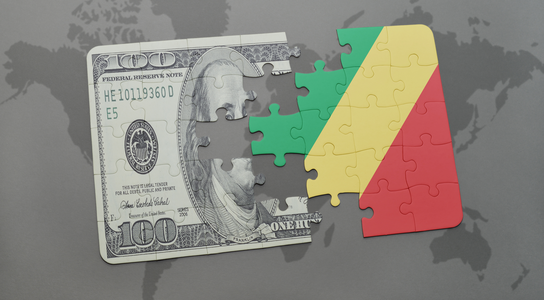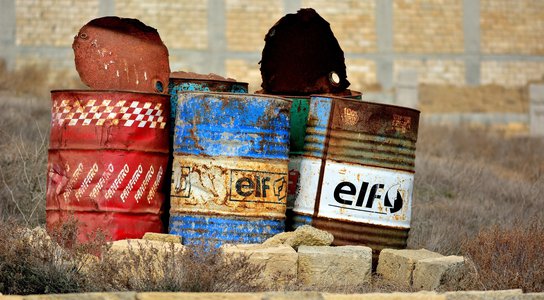A top oil official in the Republic of Congo (Congo-Brazzaville) has been secretly selling hundreds of millions of dollars in cut-price oil to private companies he himself owns, a new briefing by Global Witness highlights. The scandal surrounding Denis Gokana, head of the state oil company (Société Nationale des pétroles du Congo or SNPC), raises troubling questions about the sincerity of the government’s promises to reform a corrupt and mismanaged oil sector, at a time when the impoverished African country is asking the international community for debt relief.
'The Riddle of the Sphynx: where has Congo’s oil money gone?’ describes how since 2002 companies owned by Gokana have bought at least US$472 million worth of oil from SNPC at significantly below-market prices, and then sold it on at a profit to independent traders.
According to a recent UK court judgement, Sphynx UK, Sphynx Bermuda and Africa Oil and Gas Corporation (AOGC) were set up by Gokana in 2002 and 2003 while he was serving as a top adviser to the Congolese President, Denis Sassou Nguesso. They continued to purchase oil from SNPC into 2005, after Gokana’s promotion to head of the company and in contradiction of SNPC’s own regulations. Denis Christel Sassou Nguesso, the son of Congo’s President, also oversaw the deals as head of SNPC’s trading arm.
Global Witness calculates the loss in potential revenue to the Congolese Treasury from under-priced sales to Sphynx of around US$20 million during 2003. On one sale alone in 2005 another Gokana company made over US$3 million. Sales profits were transferred to the accounts of AOGC, a Congolese registered company, whose bank statements have never been disclosed. The UK courts ruled that this ‘corporate veil’ was used primarily to hide assets from Congo’s creditors, but there is no evidence that any of the profits made it back to the Congolese treasury.
Earlier this year, AOGC was also awarded a 10% interest in a Congolese oil concession, Marine XI, in a bidding process overseen by SNPC, headed by Gokana. The block is to be operated by UK registered SOCO International, but the contract is being contested by another company, Energem, which signed for the block before Gokana took up his post at the SNPC.
Congo provides a clear example of the way mismanagement of oil wealth not only fails to make countries richer, but can entrench corruption and instability. Despite earning almost one billion dollars from oil in 2004, Congo remains one of the poorest and most indebted countries in the world. The heart of the problem lies in opaque management of the oil revenues which account for over 70% of Congo’s budget. The government has promised donors that it will introduce transparency reforms in return for debt relief and has published a large amount of data on oil revenues.
However, this latest scandal shows that the Congolese government has failed to implement the recommendations of independent auditors to make the state oil company more Société nationale des pétroles du Congo (SNPC), accountable. The government must now hold a public enquiry into this blatant conflict of interest and instigate an independent audit of all offshore trading operations.
International donors should not award Congo-Brazzaville debt relief until the results of such an investigation are known. As the country’s biggest bilateral creditor and the originator of the G8 declaration on ‘Fighting Corruption and Improving Transparency’, France should take the lead in promoting transparency, so as to ensure Congo’s oil wealth benefits its people.
/ ENDS
Notes to editor:
- Global Witness investigates the links between the exploitation of natural resources and the funding of conflict and corruption. It is non-partisan in all its countries of operation. Global Witness was co-nominated for the 2003 Nobel Peace Prize for its leading work on ‘conflict diamonds’ and awarded the Gleitsman Foundation prize for international activism in May 2005.
- For more information on the recently approved UK court judgement see the Judgement of the Honourable Mr Justice Cooke between Kensington International and the Republic of Congo in the High Court of Justice, Queens Bench Division, Commercial Court, Royal Court of Justice, Strand, London on 28 November 2005. (Case number FOLIO 2002 NOS 1088, 1281, 1282 & 1357).
- Denis Gokana’s CV is posted on the SNPC website at www.snpc-group.com
- Background information on the Republic of Congo available from the IMF’s Article IV report on Republic of Congo, 10 January 2005; http://www.imf.org/external/pubs/cat/longres.cfm?sk=18515.0
- The SNPC has been required to report various levels of financial information and now posts financial and transaction information at http://www.mefb-cg.org/actualites/page16.htm. However, the published information reveals disturbing discrepancies. The quarterly certifications of oil revenue carried out by an independent auditor (KPMG) appear to show around $300 million of oil revenues more than the Ministry of Finance’s own statements in 2004. In short, around one third of Congo’s 2004 oil income appears to be unaccounted for in the budget.
You might also like
-
Report The Riddle of the Sphynx: where has Congo’s oil money gone?
A top oil official in the Republic of Congo (ROC) has been secretly selling hundreds of millions of dollars in cut-price oil to private companies he himself owns
-
Press release Elf verdict jails the guilty, but their bitter legacy remains
Conviction for embezzlement of three senior executives of the former French state oil company, Elf is a blow against corruption in the global oil industry
-
Report Undue Diligence
How banks do business with corrupt regimes.